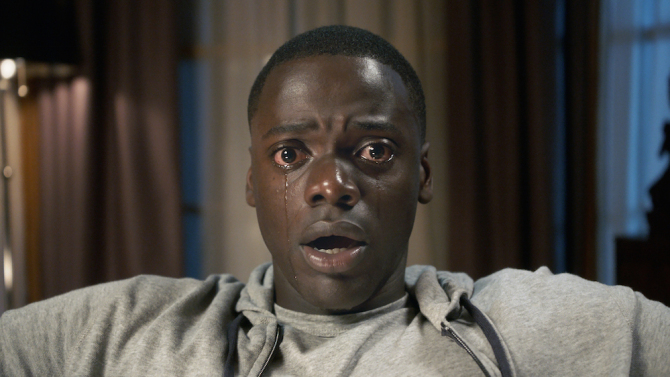Catching up on Get Out a little later than most, I knew to have my expectations high, but I didn’t know precisely how high. Based on the trailers and director Jordan Peele’s sketch comedy pedigree, I expected a subversive and satirical take on suburban racism, kind of like if Cabin in the Woods was more interested in the world around it than horror tropes (the presence of Bradley Whitford certainly didn’t hurt that expectation). Suffice to say, Get Out is not the film I prejudged it to be. It’s insights into white-collar racism are sharp, but I expected that. It has its moments of deadpan hilarity, but I expected that. What I didn’t expect is how terrifying and tense the film is, and how visually distinctive and original Peele’s production is. This is not only a movie that deftly highlights a rift in the modern discussion about race, but it is also 2017’s answer to It Follows and The Witch as an original vision in horror, and an announcement of Jordan Peele as a filmmaker well worth following.

Let’s start by looking at the frame above, which despite its presence in the trailers caught me completely off guard during the film. The push-in is uncomfortably close, actress Betty Gabriel’s face uncomfortably strained, all of which would be textbook unnerving scene-setting. But then there’s that damned bedpost on the left side of the image, which is ever-so-slightly tilted, temporarily destroying our frame of reference, and dark, making the push-in feel even more closed off. There’s nothing objectively scary in the image, no jump scare introduces it, but it’s among the most effective in the film. As the film slowly details its situation, the type of horror it plays with naturally shifts, and Peele constantly finds interesting ways of expressing it. His sense of humor certainly comes in handy to break the tension (a VHS recording late in the film manages to end on a note that’s equally unsettling and hilarious), but don’t be fooled by Peele’s sketch-comedy resume: Get Out is self-aware but not self-satirical.
Of course, Get Out is being discussed mostly for its social commentary, which makes nuanced points that beg further dissections (sample titles for the inevitable undergraduate papers on Get Out: Deer, Colonist Avatar or Symbol of Bondage?, and Appropriation Reappraised: The Folly of Colorblindness). Peele avoids making its upper-class white villains unbelievable Stepford-esque twats or hood-wearing cartoons; at the start, they feel very much like well-meaning but out-of-touch suburbanites (Bradley Whitford’s Dean Armitage would have voted for Obama a third time, after all). Get Out doesn’t engage with the alt-right; such a target is too easy. Instead, it questions the post-racial line of thinking, exposing the often unintentional and non-malicious white supremacy that is pervasive in liberal communities. That it doesn’t fall into hamfisted preaching, nor feel the need to pat its white audience members on the back, is great. That it seamlessly marries its commentary to visceral terror is masterful.

A
Get Out (2017)
Directed by Jordan Peele
Starring Daniel Kaluuya, Allison Williams, Bradley Whitford, and Catherine Keener
Rotten Tomatoes (99%)

One thought on “Get Out is unsurprisingly thoughtful and surprisingly terrifying”